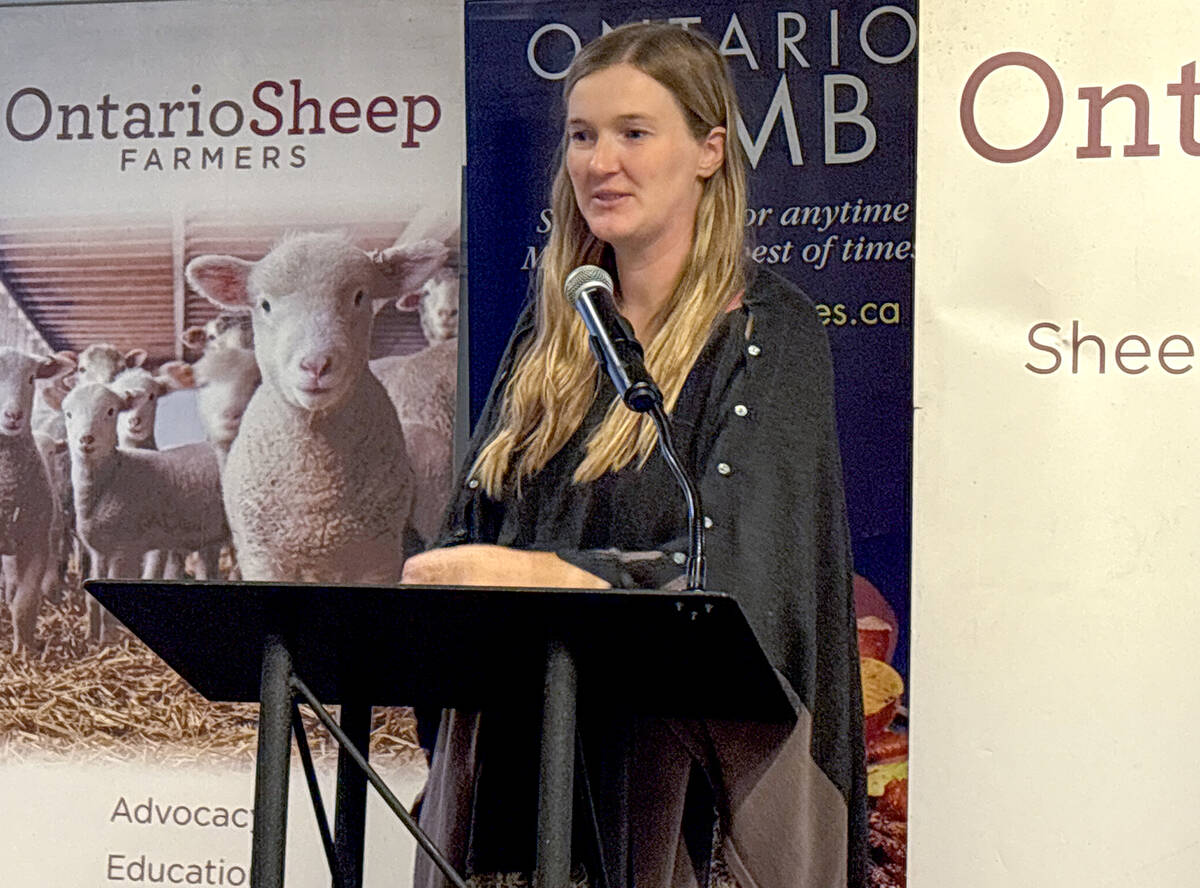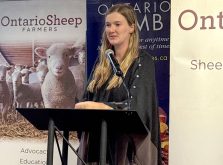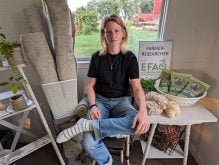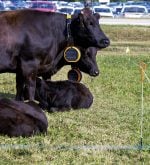Glacier FarmMedia – The Canadian Wool Council is seeking more visibility for its wares and recently received almost $150,000 to make that happen.
Agriculture and Agri-Food Canada (AAFC) announced the funding in late February, linking the money to development of environmentally sustainable textiles.
Why it matters: Meat rather than wool is the main focus of Canada’s sheep sector but the Canadian Wool Council would like to see wool play a larger role.
Read Also

Footflats Farm recognized with Ontario Sheep Farmers’ DLF Pasture Award
Gayla Bonham-Carter and Scott Bade, of Footflats Farm, win the Ontario Sheep Farmers’ 2025 DLF Ontario Pasture Award for their pasture management and strategies to maximize production per acre.
“The demand for natural and environmentally friendly products continues to grow,” said Federal Agriculture Minister Marie-Claude Bibeau. “By promoting the benefits of locally made, sustainable and biodegradable wool products, this initiative will help the Canadian wool industry tap into markets both domestically and around the world.”
The money is earmarked for market research, exploration of trade opportunities, establishing a foothold for sustainable farm practices and boosting public awareness of the sector.
The announcement was also linked to objectives set out in the council’s “Carpet Plan.” It laid out three major goals for the sector from 2021-26: rebranding; putting new effort into wool marketing; and enhancing the reputation of Canadian wool. The plan also included goals to increase marketing options for farmers and improve wool-processing capabilities.
Matthew Rowe, CEO of the Canadian Wool Council, said the future of the wool value chain must shift toward manufacturing value-added products so it is not at the mercy of the global commodities market.
Rowe said the sector lacks access to large-scale scouring, the cleaning process for raw wool.
“We’re looking at all kinds of options, including opening up a partnership with a scouring mill in the United Kingdom, which has the capacity to process in a week what all of Canada produces in a year.”
That short-term solution would then help the council build the case for the wool market, he said.
“I think a lot of people have it backward. They think the problem to the scouring backlog is to build a scouring plant, and while it’s only about $6 million, that’s not an insignificant amount of money, and if you’re going to invest $6 million in a plant, you want to know that you have an end product for that wool and you’re not just selling into the commodities market.”
Medium- or coarse-quality wool would suit the carpeting market. There are also opportunities in fashion, said Rowe, and other possibilities include industrial felts, filtration and packaging.
“There’s a lot of really high-end, high-value products where medium-coarse wool is a perfect fit,” he said.
The pandemic affected the entire textile industry, making 2020 a difficult year. The Canadian Co-operative Wool Growers (CCWG) reported a significant market downturn in that year as surpluses built up.
This was not of great concern, given wool income’s generally minor role in the sector, which focuses on meat. Wool income is more commonly considered as cost recovery for the $5-per-head cost of shearing, a necessary process for animal wellness.
“We think that the way wool has been treated in this country in the last few decades is a tragedy,” Rowe said.
“We think it’s a huge wasted opportunity, and the fact that farmers feel that their only option is to bury or burn or hide their wool rather than turn it into valuable products shows that there’s a broken system. That’s what we’re hoping to fix.”
Much of the wool council’s focus is on Eastern Canada, particularly Ontario and Quebec, where the sheep sector is larger.
– This article was originally published at the Manitoba Co-operator.















